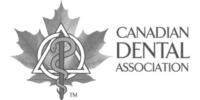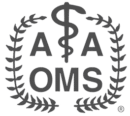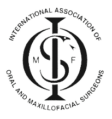Instructions following Wisdom Teeth Surgery
1. Remove the GAUZE SPONGES that have been placed in your mouth ONE HOUR after surgery, unless told otherwise. Place fresh ones as needed. Dip the dry sponge into cold water first, and then wring it out well.
2. Upon reaching home, place an ICE BAG or COLD TOWEL to the face for the remainder of the day following surgery. Nibble on crushed ice or hold ice water in your mouth over the area of surgery. Do this frequently to keep the area of surgery as cold as possible, as this will help reduce the amount of swelling that you are going to have. You may even place chipped ice within the gauze sponges you are biting on. Continue cold packs for at least 24 to 48 hours.
A bag of frozen peas makes a good reusable ice pack that can be molded to the cheek.
3. On the SECOND DAY following surgery (after 48 hours) and thereafter, if swelling has occurred, apply MOIST HEAT on the outside of the face in the form of a bath towel dipped in hot water wrung out, and folded several times over. DO NOT USE HEAT CONSTANTLY but apply only for 20-30 minutes in a 2-hour period.
4. For any pain or discomfort, use the PRESCRIPTION that has been given to you. Don’t be afraid to take the medication as it is designed to make those first few days after surgery more comfortable for you. When taking medications be sure to drink at least a half to a full glass of either water or milk This will ensure RAPID ASSIMILATION by the body and MINIMIZE the amount of IRRITATION to the stomach itself. CODEINE, as well as other NARCOTIC DRUGS, can cause nausea and sometimes even vomiting, so drink plenty of liquids when taking oral medications.
5. In most instances, sutures (stitches) will be placed. They will dissolve on their own over the next several days.
6. Avoid rinsing until the following afternoon, as rinsing may dislodge the BLOOD CLOT and initiate BLEEDING. When rinsing, use the following:
RINSE GENTLY with 1/2 TEASPOON of salt in an 8-0UNCE GLASS of warm water twice a day. You may begin brushing your teeth the day after surgery.
Begin flushing with the syringe five days after surgery. Flush the lower sockets with salt water solution at least twice a day. Avoid commercial mouthwashes, as they contain alcohol, which may cause wound irritation.
7. Drink plenty of FLUIDS, such as orange or tomato juice, ginger ale, water, tea, etc. Drink at least FOUR to EIGHT GLASSES of liquids daily. DEHYDRATION must be guarded against when having oral surgery.
8. Following your own inclination as to diet but for your own comfort, stick to a SOFT LIQUIDITY DIET. A diet high in PROTEIN and COMPLEX CARBOHYDRATES is best. A homemade SHAKE, using fresh fruit blended into it, is an excellent source of both. Try not to skip a single meal. Begin by eating soft foods or liquids such as heavy soup, milkshakes, soft-boiled eggs, cereals, etc. As soon as possible, change to solid food.
If you are a DIABETIC, maintain your normal diet and take your medication as usual. Avoid popcorn for 2 months. Avoid seeds or nuts for 2 weeks.
9. Do not use STRAW and AVOID SPITTING for the first 48 hours. This will cause negative pressure over the surgical site and may dislodge the clots. This may initiate bleeding or a dry socket which will increase the amount of pain or discomfort you are having.
10. SMOKING after your surgery is DISCOURAGED. Besides the irritation to the tissues from the smoke, the sucking action will have the same effect as using a straw.
11. High doses of VITAMIN C (3 grams per day) with meals will help to promote healing. High doses of all the vitamins are helpful during the healing period.
12. If you have been given any MEDICATIONS or prescriptions for medications, take them faithfully as directed. If you have been placed on an ANTIBIOTIC, take all of the tablets as directed. The medications which you have been placed on will help to:
- MINIMIZE swelling
- REDUCE discomfort
- PREVENT infection
- PROMOTE healing
- AID in oral hygiene and wound CLEANLINESS
13. Avoid STRENUOUS PHYSICAL ACTIVITY for 24 hours. This includes bowling, swimming and other sports in which one becomes winded. Physical activity causes the blood pressure to rise – and may cause a renewal of hemorrhage.
14. Do not operate a motor vehicle or machinery nor drinking alcohol for 24 hours following anesthetic.
IN THE EVENT THAT YOU FEEL THAT YOUR POST OPERATIVE COURSE IS MARKED BY EXCESSES OF:
PAIN, SWELLING OR HEMORRHAGE,
CALL OUR OFFICE: 416.766.7616










